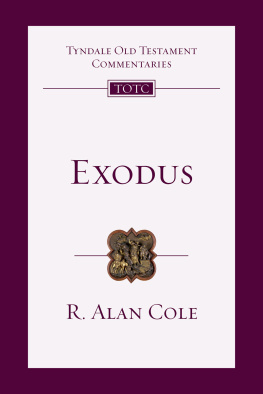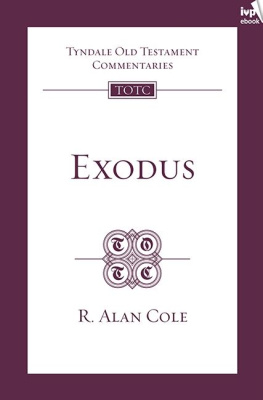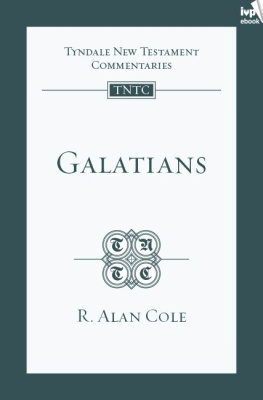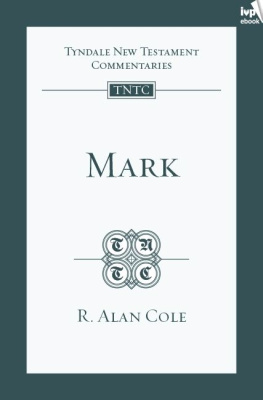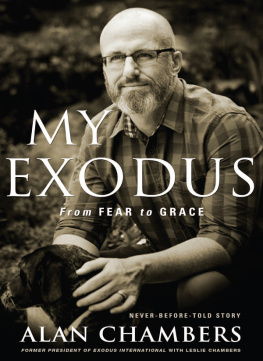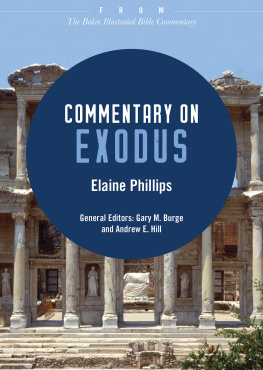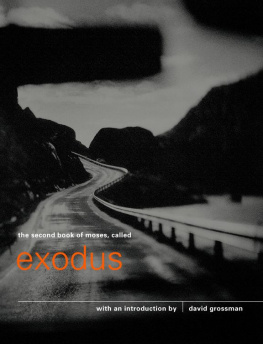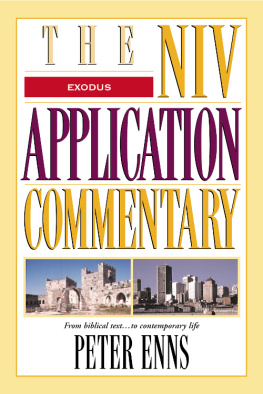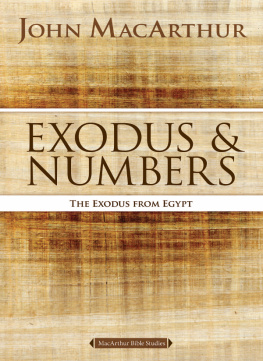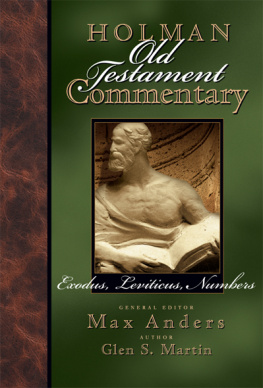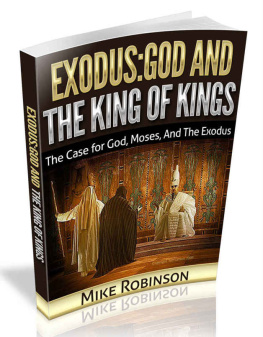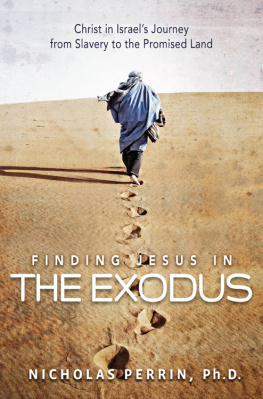TYNDALE OLD TESTAMENT
COMMENTARIES
VOLUME 2
EXODUS
TYNDALE OLD TESTAMENT
COMMENTARIES
VOLUME 2
GENERAL EDITOR: DONALD J. WISEMAN
EXODUS
AN INTRODUCTION AND COMMENTARY
R. ALAN COLE
Contents
General preface
The aim of this series of Tyndale Old Testament Commentaries, as it was in the companion volumes on the New Testament, is to provide the student of the Bible with a handy, up-to-date commentary on each book, with the primary emphasis on exegesis. Major critical questions are discussed in the introductions and additional notes, while undue technicalities have been avoided.
In this series individual authors are, of course, free to make their own distinct contributions and express their own point of view on all controversial issues. Within the necessary limits of space they frequently draw attention to interpretations which they themselves do not hold but which represent the stated conclusions of sincere fellow Christians. Thus, for example, the author does not put particular stress on such debated questions as the date of the revelation of the divine name or of the departure of the Hebrews from Egypt. His aim is rather to point out the profound part these crucial historical events played in the life and theology of the Hebrews and thus of the whole of the Old (and later New) Testament. The book has many lessons for our own day.
In the Old Testament in particular no single English translation is adequate to reflect the original text. The authors of these commentaries freely quote various versions, therefore, or give their own translation, in the endeavour to make the more difficult passages or words meaningful today. Where necessary, words from the Hebrew (and Aramaic) Text underlying their studies are transliterated. This will help the reader who may be unfamiliar with the Semitic languages to identify the word under discussion and thus to follow the argument. It is assumed throughout that the reader will have ready access to one, or more, reliable rendering of the Bible in English.
Interest in the meaning and message of the Old Testament continues undiminished and it is hoped that this series will thus further the systematic study of the revelation of God and his will and ways as seen in these records. It is the prayer of the editor and publisher, as of the authors, that these books will help many to understand, and to respond to, the Word of God today.
D. J. Wiseman
Authors preface
It is with mixed feelings that I bid farewell to Exodus, for I feel as if I am parting with an old friend. I am sure that the editorial staff of the Tyndale Press, who have borne patiently with my delays over the last few years, will agree with this estimate, though their feelings may be less mixed. To me, it is a happy augury that this commentary was begun at Trinity College, Singapore; finished at Moore College, Sydney; and that this Preface is finally sent to the press from Robert Menzies College, Macquarie University. If it had a dedication, I should dedicate it to all three.
I am well aware (none more so) of the deficiencies of this commentary. I have deliberately striven to be explanatory and exegetic throughout, rather than devotional, judging that to be the main aim of the present series. It is not that I disagree in any way with the devotional use of the Old Testament (far from it), but that I must leave this task to others.
One thing I do ask is that readers will turn first to the introductory section on The Theology of Exodus (pages 22ff.): this is designed to give the framework upon which the whole of the rest hangs. A prior reading of this section will not only mean that the reader will get more out of the commentary, but also more out of the book of Exodus itself (which is far more important). It is only fair to say that even this theological introduction arose from one of the many helpful suggestions made by far better scholars than I, when they read the typescript at an earlier stage. I shall not mention their names: but it is no exaggeration to say that, if this book has any good points, it is due to their kindly suggestions. For the remaining obscurities and imperfections, I must be held wholly responsible myself.
R. Alan Cole
1972
Chief abbreviations
AV | English Authorized Version (King James), 1611. |
BDB | Hebrew-English Lexicon of the Old Testament by F. Brown, S. R. Driver and C. A. Briggs, 1907. |
Bright | History of Israel by J. Bright, 1960. |
Buber | Moses by M. Buber, 1946. |
Cross | The Priestly Tabernacle by F. M. Cross in Biblical Archaeologist, 1947. |
Cross and Freedman | The Song of Miriam by F. M. Cross and D. N. Freedman in JNES, 1955. |
Daube | The Exodus Pattern in the Bible by D. Daube, 1963. |
Davies | Exodus by G. Henton Davies, 1967. |
Driver | Exodus by S. R. Driver, 1911. |
Eissfeldt | The Old Testament: An Introduction by O. Eissfeldt, Eng. tr. 1965. |
Fohrer | Introduction to the Old Testament by G. Fohrer, Eng. tr. 1970. |
Gooding | The Account of the Tabernacle: Translation and Textual Problems of the Greek Exodus by D. W. Gooding, 1959. |
Grollenberg | Atlas of the Bible by L. H. Grollenberg, 1957. |
Harrison | Introduction to the Old Testament by R. K. Harrison, 1970. |
Hyatt | Commentary on Exodus by J. P. Hyatt (New Century Bible), 1971. |
IDB | The Interpreters Dictionary of the Bible, 4 vols., 1962. |
JB | Jerusalem Bible, 1966. |
JNES | Journal of Near Eastern Studies. |
Kitchen | Ancient Orient and Old Testament by K. A. Kitchen, 1966. |
LXX | The Septuagint (pre-Christian Greek version of the Old Testament). |
Mendenhall | Law and Covenant in Israel and the Ancient Near East by G. E. Mendenhall, 1955. |
MT | Massoretic Text. |
Napier | Exodus by B. D. Napier, 1963. |
NEB | The New English Bible Old Testament, 1970. |
North | Pentateuchal Criticism by C. R. North in The Old Testament and Modern Study, ed. H. H. Rowley, 1951. |
Noth | Exodus by M. Noth, 1962. |
Rothenberg | Gods Wilderness by B. Rothenberg, 1961. |
Rowley | From Joseph to Joshua by H. H. Rowley, 1950. |
RSV | American Revised Standard Version, 1952. |

